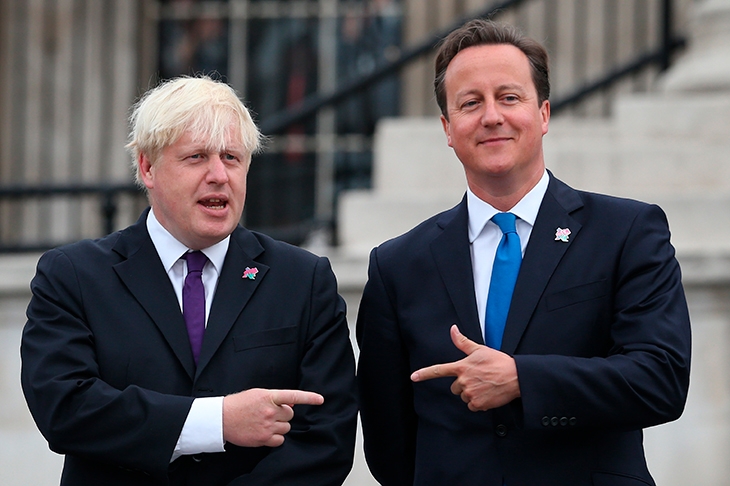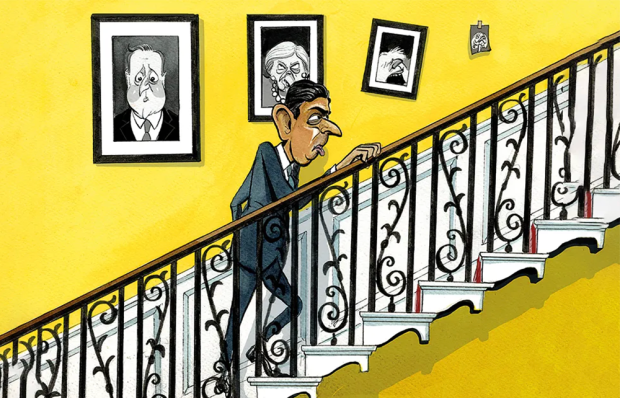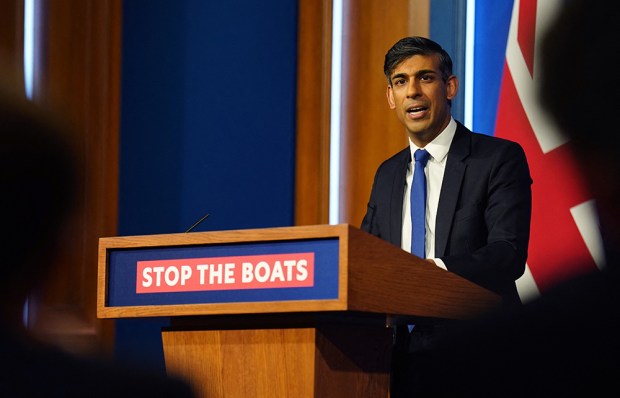This isn’t about David Cameron and Greensillgate; it isn’t about Boris Johnson and wallpapergate or Jennifer-Arcurigate. It isn’t about Westferrygate and the illegal planning approval (later reversed) given to a big Tory donor by the responsible minister (Robert Jenrick) for that grotesque development. Nor about Mr Jenrick’s department’s awards under the Towns Fund, which the public accounts select committee found had ‘every appearance of being politically motivated’. Nor is it about (Lord) Edward Lister and the late Sir Jeremy Heywood and twohatsgate, nor about Len McCluskey, Joe Anderson, Paul Flanagan and Flanagangate in Liverpool.
Some of these men (the last two) have been the subject of police inquiries and one is on bail. Others have not been accused of criminal activity but only of morally dubious behaviour. Maybe some or all of them are entirely innocent. In very different ways, all have been accused of behaving disgracefully, but commentators are quick to bandy about words like ‘corruption’ when nothing more than impropriety or just poor judgment is being alleged. In all these cases, I imply no view.
Instead, I invite you to think about the process of what we might call adjudication. When it comes to investigating charges of impropriety, and reaching a judgment that can command widespread respect and be considered final, we British have got ourselves into a horrible tangle. We need to simplify. We should create structures and processes that — in the correct use of that term — can be accepted as disinterested, overseen by adjudicators whose authority and objectivity are unimpeachable. At present we flounder in a morass of variously external, internal, judicial, parliamentary and bureaucratic investigations, many of them leading to judgments that will immediately be dismissed as whitewashes or witch hunts by those who had wanted another outcome.
Take the Greensill affair. As I write — and I’m open to correction — Mr Cameron and/or others are subject to investigation or inquiry by (in no particular order): an ‘independent’ inquiry ordered by No. 10; the Treasury select committee; the Public Administration and Constitutional Affairs Committee; the Public Accounts Committee; a Cabinet Office review into civil servants and conflict of interest; the Committee on Standards in Public Life; and the National Audit Office.
I may have left a few out. The present cabinet secretary, the unfortunate Simon Case, tends to get tasked with carrying out inquiries into most things these days, and he may be doing his own inquiry into this one too. He’s certainly enquiring into the business of who paid for Boris Johnson’s wallpaper at No. 10. But so is the Electoral Commission which (I think) can conduct what count as criminal investigations, but are not to be confused with the police. I don’t think the police are involved yet, but who knows?
Additionally (on wallpapergate) the Labour party has asked that the parliamentary commissioner for standards investigate a potential breach of the MPs’ code of conduct: I’m not sure where we are on that one. And finally (or perhaps not) the Prime Minister has appointed a new adviser on ministerial standards, Lord Geidt, and asked Geidt to investigate him — but without any commitment to abide by any recommendations Geidt may make. Or even to disclose them.
On the Jennifer Arcuri affair, the Independent Office for Police Conduct enquired for some time into a possible connection between a romantic affair between Ms Arcuri and Mr Johnson when he was mayor of London, and her receipt of thousands of pounds of sponsorship grants and invitations to join trade missions he led in America. The IOPC inquiry established no connection. But now the Greater London Assembly has launched an inquiry of its own into allegations of an Arcuri-related conflict of interest during his time as mayor. Oh — and shortly after Johnson became Prime Minister an internal government inquiry found ‘no impropriety’ in a 2019 decision by the Department for Culture, Media and Sport to award a £100,000 grant to a company owned by Ms Arcuri.
So that’s three inquiries on the Arcuri business, seven (is it?) on Greensill, and three (plus one inquiry request from Labour pending) on the wallpaper business. On ‘twohatsgate’ — the matter of civil servants appearing to have fingers in (or hopes for future fingers in) lucrative external pies — it surprises me that no inquiries have yet been announced into Edward Lister’s conduct.
The Financial Times (‘Double life of Johnson’s ally raises awkward conflict of interest questions’, 30 April) has been reviewing Lord Udny-Lister’s many interests while at Johnson’s side. Throughout Johnson’s time as London mayor and then at Downing Street as his chief strategy adviser and (finally and briefly) as his chief of staff, Lister’s ‘double-hatting’ of official duties for Johnson and contemporaneous external business interests is raising eyebrows. Lister seems to be resigning from things as fast as his legs will take him. I note that Labour are now calling for an investigation.
But by whom? And who sets the terms of reference? Would anybody be bound by its recommendations? Have you any better idea than me what are the existing rules on how in Britain we address issues of professional or personal probity in what might be termed public life? Other countries have permanent, independent commissions into impropriety or corruption, but we British think we don’t need that kind of thing because … well, basically, we’re clean. We’re all, or almost all, good chaps. So if a chap steps out of line, it’s ‘naughty naughty’ and a discreet wrist-slap from a professional body.
This won’t do. Nobody should be investigating their boss. Civil servants should not be investigating other civil servants. Politicians should not be judging colleagues. One police force should not be investigating another. Prime ministers should not be appointing the people who investigate them. Fair–minded or not, colleagues marking each other’s (or even their own) homework invites public cynicism. We are not all jolly good chaps, and adjudication should proceed, as should all good regulation, on the basis of the total detachment of the adjudicator, and the acknowledgement of original sin.
Got something to add? Join the discussion and comment below.
Get 10 issues for just $10
Subscribe to The Spectator Australia today for the next 10 magazine issues, plus full online access, for just $10.
You might disagree with half of it, but you’ll enjoy reading all of it. Try your first month for free, then just $2 a week for the remainder of your first year.














Comments
Don't miss out
Join the conversation with other Spectator Australia readers. Subscribe to leave a comment.
SUBSCRIBEAlready a subscriber? Log in